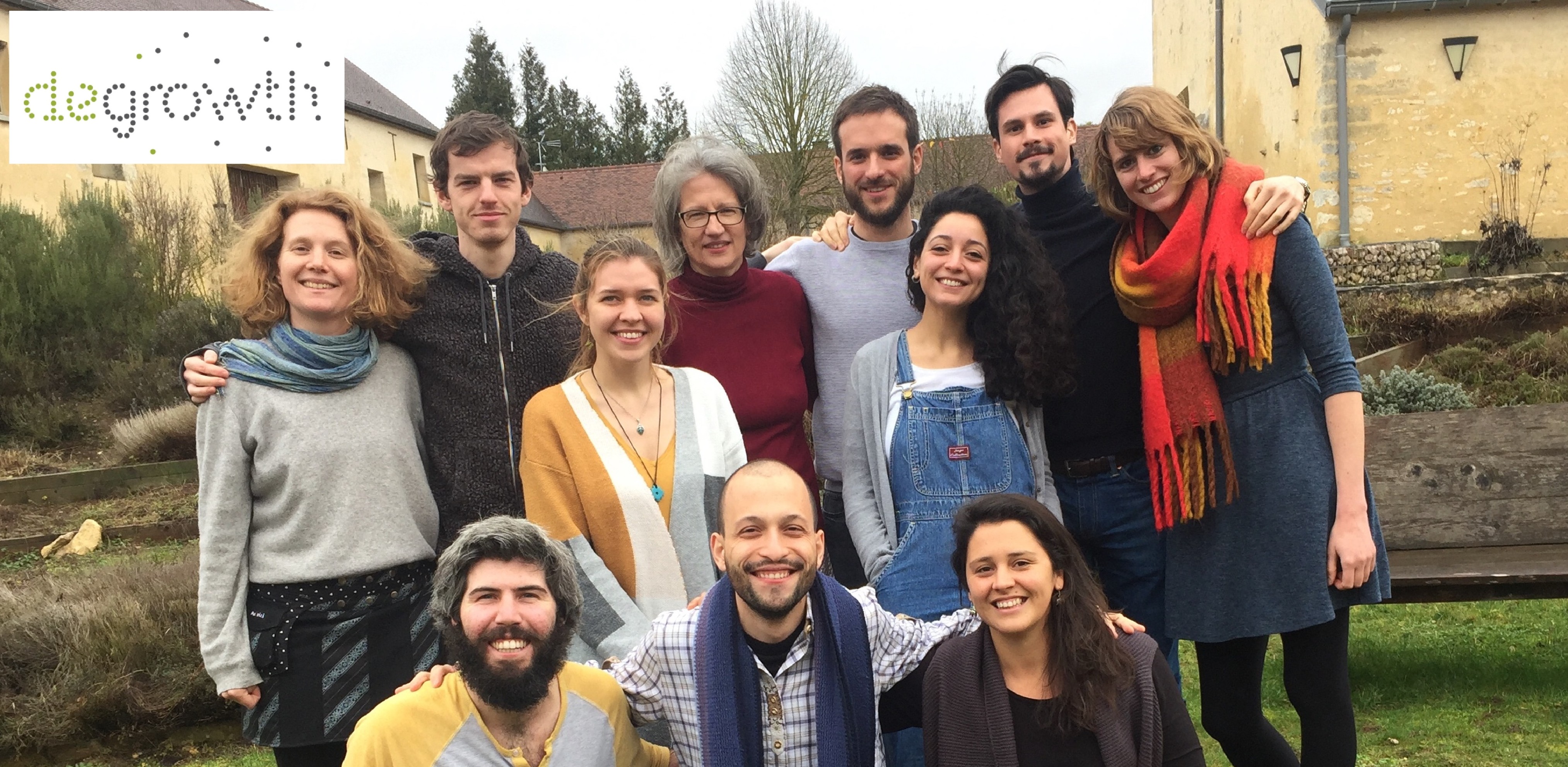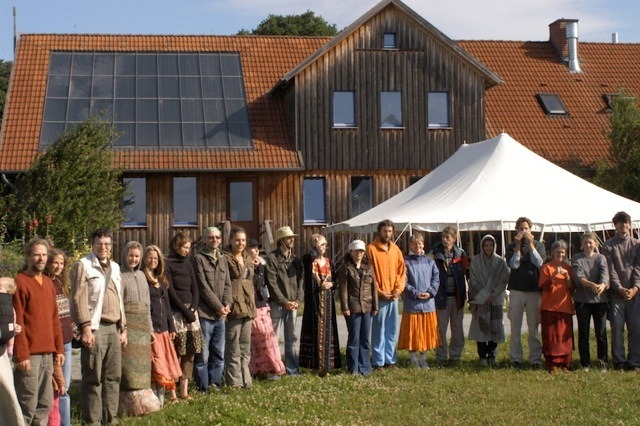Growth-critical authors and advocates of a post-growth society are often criticized on the grounds that some of their arguments appear open to appropriation by authoritarian nationalist and nativist racist forces. As such objections are often made in a polemical and overly generalised manner, often ultimately aiming to delegitimize growth-critical ideas as a whole, those being criticised often react with angry rejection. Nevertheless, supporters of Post-Growth and Degrowth are well advised to seriously reflext on whether and to what extent their own arguments are in fact amenable to such right-wing appropriation.
Because of the underdetermined nature of the concept of "growth", skepticism of that concept per se is indeed hard to locate on a political scale. In a German representative survey in 2016, almost three-quarters of respondents agreed with the statement "When I see that our economy continues to grow year after year, I ask myself: how long can this continue to work?" Obviously, there must be a wide range of different political attitudes feeding into this.
Indeed, growth-critical views exist in all sectors of the political spectrum, except perhaps for die-hard neoliberals. It is thus little surprising that it also finds supporters among the political right. Engaging with this is a m,atter of urgency: the recent rise of authoritarian nationalism has boosted the influence of political forces that try to turn the widespread scepticism about growth into a conduit for their racist ideologies. The Cinque Stelle, the purportedly growth-critical Italian five-star movement, which now governs together with a neo-fascist party, should be a warning example of the fatal consequences coming with the assumption that shared opposition to "neo-liberalism" or EU austerity policy makes any enemy of the enemy a friend. Recognizing this forces growth critics with emancipatory intentions to specify the terms of their critique and to draw very clear lines against such ideological hijacking.
Right-wing populism and growth: unquestioned advocacy
Of course, the far right is far from homogeneous, and different authoritarian-nationalist actors’ takes on growth and its criticism vary widely. The simplest case is that of those forces perhaps aptly termed 'populist' – e.g. Trump, the Brexiteers or the Polish and Hungarian governments. "Populism" here refers to a political strategy aimed at short-term success in elections and ballots, appealing to sentiments and widespread prejudices by blaming minorities and elites. Such forces usually have no sympathy for growth criticism since, according to the commonplace notions they build on, growth is still positively associated with gains in individidual prosperity. This is closely tied to a baseline marketliberalism that has over the last few decades been internalized by a majority as economic common sense. It is rather unlikely that such forces should try to capitalize on growth criticism any time soon.
Nativist racism: growth criticism from the right
The situation is different with the openly racist movements of the right-wing, and especially the European "New Right", which situates itself in the tradition of the so-called "conservative revolution" in the interwar period. The "New Right" – spearheaded by French intellectual Alain de Benoist and inspirational of activist groups such as the "Identitarian Movement" – promotes the idea that there are ‘justified’ inequalities between people based on their belonging to different "cultures", and that mixing these cultures is intrinsically harmful. Although differing from classic biological racism in no longer openly calling for the extermination of other ethnic groups, this ideology claims that it is best for all if everyone stays where they belong. The core belief of ethnic racism – namely, that there are essentially different types of humans that are unequal
and must remain so – remains intact. Thus, such ideologies are always, in their very essence, anti-egalitarian, anti-universalist and anti-individualistic.
Within German far-right party “Alternative für Deutschland” (AfD), such ideas are prominently represented by its Thuringian state chairman Bernd Höcke, who resides squarely in this ideological spectrum. He blends his ideas of a “national turn” with an explicit criticism of growth. Yet, instead of the constraints of the growth imperative resulting from the capitalist principle of competition and the abstract logic of the extended reproduction of capital, Höcke identifies interest as the principal culprit: "The current crisis is definitely not one [...] of the market economy, but one of the corresponding monetary system, of interest-based capitalism." (Letter to weekly
Junge Freiheit, 2008). In line with a long tradition of purportedly anti-capitalist right-wing reasoning, Höcke, in an argument laden with anti-semitic connotations, locates the problem in the "parasitic" nature of interest-based credit. He does not go on to explicitly blame the negative consequences of growth on "the Jews", but he knows very well that his audience understands the message. The fact that critiques of interest, albeit without their anti-semitic connotations, are often heard in some corners of the post-growth debate should give growth critics with emancipatory intentions something to think about.
Another important figure is Felix Menzel, self-proclaimed leading intellectual of the "Identitarian Movement". In the blog of New Right periodical "Sezession", he published a series on growth criticism, in which he addressed not only interest but, above all, population growth in the global South as an alleged threat to European societies. To counter this, he posits that immigration movements must be prevented, globalization abandoned, and that national and regional cultures must be made to return to their heritage and traditions. The semantic affinities with some variants of post-growth thought are easily detected. Indeed, Menzel openly calls on left-wing critics of growth to align themselves with the nationalist right, in order to form an alliance against a "meta-ideology" of "boundless flexibility" and for "a modest life based on healthy common sense". That this 'offer' must be rejected in the strongest terms should be clear.
How can this be dealt with?
The German-speaking post-growth spectrum has just begun to develop a clear stance on these advances from the right. While there appears to be little awareness of the problem in the conservative and sufficiency-oriented currents, a clear demarcation is most actively drawn by actors in the degrowth spectrum. At degrowth.info, many contributions clearly emphasize the incompatibility of degrowth with racist or nationalist positions, and actors in the movement are seeking for ways to practise solidarity with those affected by racism. (an example
here)
But what would a variety of growth criticism look like that is immune to appropriation? As we have seen, varieties drawing on arguments about ecology or alienation alone are at risk of falling into Menzel's trap and turning to the wrong "ally." A position rooted in an understanding of Degrowth as a global justice movement, which views efforts to terminate the capitalist growth imperative as a prerequisite for achieving ecological and social equality among all human beings, resists this fallacy. It achieves this "incompatibility" by consciously founding its arguments on i) demands for global equality as a basis of its ecological claims (and not the other way around), ii) positive reference to the emancipatory aspects that modern universalism has always (but never exclusively) had, and iii) a critique of the capitalist economy that focuses on its logic of extraction, exploitation and destruction rather than on interest, money and consumption.
This post is a translated version of the article "
Gefährliches Werben: Wachstumskritik von Rechts". The translation was done by members of the editorial team.

